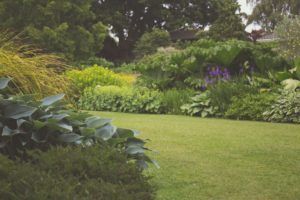

Energy
4 Summer-Friendly Water Conservation Tips
Along with the hot weather of summer comes an abundance of water. From sprinklers in the lawn to the neighborhood swimming pool down the street, water is synonymous with summer. However, it’s important that you do what you can to conserve as much water as possible. So, start by trying these summer-friendly tips:
1. Be Smart With Sprinklers
When it comes to wasting water, sprinklers are notorious culprits. While you may simply be trying to keep your lawn alive during a dry, harsh summer, you’re probably wasting thousands of gallons of water. Thankfully, there are ways to enjoy the benefits of sprinklers while still being resourceful.
The answer is low flow sprinklers. With a low flow sprinkler system, you’re able to minimize runoff, target specific areas, and hit plants directly in the roots. There are a variety of types of low flow sprinklers, so you’ll need to do your research, but the most common are low flow drip systems, low flow trickle systems, and low flow spray systems.
2. Strategically Water Your Garden
Your garden and other landscaping plants will need some water this summer to survive, but make sure you’re being strategic about how and when you water. Many people end up wasting hundreds of gallons of water per month because they don’t know how to properly water plants.
“Don’t soak the plant’s foliage; it does little good. And don’t apply water outside a shrub’s or a perennial’s root zone,” Popular Mechanics points out. “A shrub’s root zone is roughly 1 to 3 times the diameter of its canopy, and keeping the water inside this radius will allow it to soak down to where the plant’s roots can reach it.” Furthermore, try watering during the early morning or early evening. This allows the plants to absorb more of the water, as opposed to being dried out by the heat.
3. Use the Dishwasher Responsibly
While you may assume that using a dishwasher isn’t very energy efficient, the reality is that it’s much better to use this powerful appliance than it is to wash dishes by hand. When you wash dishes by hand, you end up wasting a lot of water. To get the most out of your water usage, scrape dishes clean in the trash can (as opposed to pre-rinsing). Then wait until the dishwasher is totally full to run it. The dishwasher uses the same amount of water regardless of whether it’s half empty or completely full.
4. Fix Those Leaky Faucets
Have you ever noticed a leaky faucet in your home? Maybe it’s a slow, yet steady drip in the guest bathroom? Well, you should view this faulty faucet as more than a nuisance. It’s actually a big water waster.
Did you know that a faucet leaking a single drip per second actually wastes 2700 gallons of water over the course of an entire year? That’s more than seven gallons every single day!
Most leaks can easily be fixed on your own. Otherwise, a plumber should be able to handle the job in a matter of minutes. Go ahead and take care of this seemingly minor problem today and you’ll enjoy the peace of mind that comes with knowing you’re saving hundreds of gallons per month.
It’s Time to Do Your Part
It’s important that you – as an individual – begin to understand and respect the impact you can have on the environment. While saving a few gallons of water here and there may not seem like a big responsibility, you’d be amazed by how quickly it can add up over time. A concerted effort from just a single neighborhood or large family can lead to sizeable savings this summer.
It’s time to do your part!


 Environment12 months ago
Environment12 months agoAre Polymer Banknotes: an Eco-Friendly Trend or a Groundswell?

 Features11 months ago
Features11 months agoEco-Friendly Cryptocurrencies: Sustainable Investment Choices

 Features12 months ago
Features12 months agoEco-Friendly Crypto Traders Must Find the Right Exchange

 Energy11 months ago
Energy11 months agoThe Growing Role of Solar Panels in Ireland’s Energy Future





























